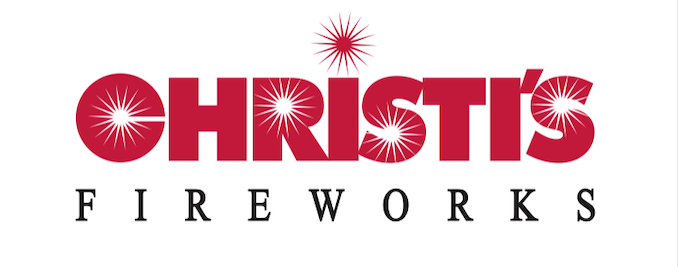“Many small businesses rely on small financial institutions, like credit unions and community banks, to meet their capital requirements. Without them, these small businesses would have to close their doors.” ~Sam Graves
[CAF Note: Originally published on July 4, 2004]
By Catherine Austin Fitts
A. Identify Local Banks
1. Get the list of the banks and credit unions in your area from your local Yellow Pages. Delete names that you know to be large banks or banks involved in fraud and large derivatives trading.
2. Visit your local Chamber of Commerce and ask them for a list of all banks in your area — ask them to identify which only operate locally and/or regionally and which are owned locally or regionally, or, if credit unions, controlled locally.
A local bank is a bank that operates within your local area and is primarily owned or controlled by people who live within or near your local area.
A regional bank is one that operates in your state and a few other states and is owned and/or controlled by people based in those states.
B. Collect Information and Recommendations
1. Do Web searches to identify websites for the banks on your list and information they disclose. For banks that issue publicly traded stock or other securities, check their website or the EDGAR system to access the annual report, proxy and other filings they file with the US Securities and Exchange Commission (SEC).
2. For information not web available, call or visit the banks and ask for information regarding their area of operation, who owns and governs them, copies of their annual report (including financial statements) and information on and prices of products and services of interest to you. Also ask what % of their deposits they loan locally as opposed to reinvesting in national or international money markets and what their correspondent banking relationships are so you know whether or not they are channeling their funds to money center banks, particularly those with a record of settlements for financial fraud or harm to consumers. Use this % to compare to other banks in your area.
3. If they are reluctant to provide you with their financial statements or you find it difficult to persuade them to give you a copy, delete the bank from your list.
4. Tell you friends, family and trusted professionals and business people in your community that you would like to shift to a local bank and ask them for recommendations of which local and regional banks have provided them and their networks with the best service and support.
5. For the banks that emerge as the most likely candidates, you may want to check with the rating agencies or bank rating services to see what additional information is available about the bank. Another source of information on the banks history is to do Lexis-Nexis searches for both the bank and the owners, board members and top management.
6. Based on these steps, identify the 2-3 best potential banks for you and proceed to the next steps.
C. Evaluate The Banks’ Leadership
1. Owners
Do they live in your community?
What is their reputation and experience?
2. Trustees/Governance
Do they live in your community?
What is their reputation and experience in banking, investments and the types of businesses, governments and other organizations that the bank serves?
Are they people of integrity and competence?
Do they represent a diversity of experience, knowledge and networks in the community?
Are they motivated and caring people?
Do they care about their business and are they proud of the principles operating in the bank?
Do they care about their customers and their colleagues?
3. Management
Do they live in your community?
What is their reputation and experience?
Is turnover low?
What is the spirit you feel when you walk into the bank?
Are they professional and proud of the organization that they represent?
Your intuition is an important guide. Talk to a loan officer or branch manager — Do they have freedom to make decisions and do their jobs or are they heavily bound to top/down
procedures? See how they handle your request. Ask what the procedures are for a loan or opening an account. There is a often a direct correlation between better service and the less hoops that customers have to go through, less paperwork to fill out and less fees to pay.
D. Profitability and Financial Safety and Soundness
What is the customer base of the bank?
Does this customer base represent a strong diversified base of deposits and lending business?
Review their financial statements
Has the bank been consistently profitable?
Do they show a strong base of equity, retained earnings or other financial reserves?
What and who is generating the profits of the bank and what are the potential risks associated with those profit flows?
Do the bank financials indicate a sustainable flow of business that would be sound even in difficult economic periods?
Would the bank be safe and sound in a scenario where we could not depend on FDIC deposit insurance?
What is the ratio of their loans to deposits? Do they have extra cash reserves above what is required by law? This shows a conservative “loan to deposit” ratio.
Does the bank avoid high risk financial practices such as too much debt and large derivative portfolios?
Who are their correspondent banks and other strategic relationships?
In the course of asking for recommendations, are there ever any instances of customers being delayed in accessing the cash in their account? Delays in getting your money out are a bad sign.
E. Locations & Services
What are the main office and branch locations and what are the days and hours when they are open?
Make a quick list of the products and services you now use as well as the products and services you would value — items such as checking and savings accounts, wire transfer services, safe deposit boxes, ATM cards, credit availability and affiliated investment services.
What are the products and services available through the bank and their affiliates?
Compare this to the list of products and services you need and value.
F. Fees, Costs & Interest
Review the fees and costs of either switching your account or simply creating a new account.
What are the interest rates and payments they provide to depositors or investors in certificates of deposits?
If they are a credit union, what is their history of distributing profits?
G. Confirm Federal Deposit Insurance
If you want to confirm that the deposits at your new bank are indeed federally insured you can contact:
United States Federal Deposit Insurance Corporation (FDIC)
550 17th Street, NW
Washington, DC 20429-9990 USA
E-Mail: publicinfo@fdic.gov
Tel: +1 202 736 0000
Fax: +1 202 898 3772
https://www.fdic.gov
National Credit Union Administration (NCUA)
1775 Duke Street
Alexandria, VA 22314-3428 USA
E-Mail: boardmail@ncua.gov
Tel: +1 703 518 6300
Fax: +1 703 518 6660
https://www.ncua.gov
H. Make the Switch
You can either close your old account(s), or open your new account as your old account runs down. Some depositors prefer leaving the old account open to the extent they have automatic transfers and/or deductions in the old account and it may take a while to change or they consider it too risky to change them. Other prefers to do this ahead of time to avoid the expense and complications of having two accounts.
When you close or withdraw from your prior bank, if you are comfortable doing so, explain why you are moving your account. This type of customer feedback can have a significant impact on bank policies — particularly if enough people do so.
When you open your new account, make sure you communicate with your new bank about why you selected them. It takes a lot of hard work over many years to create and build such a bank. Your new bankers will appreciate knowing that you appreciate their efforts to build and manage a safe and sound business that supports your community.
If you are interested in doing so, let your new bankers know that you would like their help in understanding what you can do to help them support local business and your community and to help the money in your area “come clean.’
As you make the switch, set aside some time to check and make sure the process of working with a new bank goes well. Change is a learning process. There may be glitches. Take the time to work them out — to feed back — and work with your bank to ensure that their products and services are working in an ideal way for you. Remember, they want to do a great job for you.
Good banking relationships are like all banking relationships — they grow and succeed as we invest in them and hold them to the highest standards.
I. Feel Good About Your Efforts to Come Clean
Once you are confident that you have moved to a bank that you are really happy with, sit back and feel good about your efforts. While decentralizing our financial system is a life long process, you have taken a very important first step!
Enjoy your accomplishment!
J. Build a Relationship
It helps to have a relationship with your banker. Does the bank participate in events and philanthropy that is of interest to you? Join in.
Have your bankers done a good job for your? Refer new customers to them. Take a personal interest and get to know your bankers.
Such a relationship is invaluable. I was in Italy walking to an afternoon concernt last year and my cell phone rang. My banker said, “Your debit card was just charged for tickets to Disney World Paris. We know that was not you. We are cancelling your card and mailing you a new one. Will you be ok on this trip without it? I said yes with a very big thank you. It took only a minute of my time. My day was uninterrupted.
Imagine if I had been at a large bank? This is one of the many good things that happen when you and your banker know each other and trust each other!.”
K. Questions and Answers?
How Long Will This Take Me?
Depending on how many banks you want to consider and whether you can access good recommendations in the normal course of living without taking a lot of time, identifying and moving your bank account could take anywhere from 4-15 hours over a period of 1-4 weeks. If you team up with close friends and share the research, it can go even faster! The key to speed is to winnow the list down to the most likely candidates.
Take your time if you want to use this process to learn how the money works in your community and to build your skills in accessing and using financial information.
Related Solari Reports:
Where Would Jesus Bank?
My Bank: How do I Find a Great Local Bank
How do I Find a Great Local Bank – The Next Generation
Unpacking Your Local Financial Ecosystem
Related Reading:
Coming Clean
Unpacking Your Local Financial Ecosystem – Links and Resources
Rethinking Diversification
FFIEC Central Data Repository’s Public Data Distribution









I’m really loving my subscription to Solari. There is so much great content here that is extremely valuable. I only signed on for a month but I’ve had this on every day at work – I think I need to go for that year subscription, paid by one of the various cash methods and catch an extra 3 months on top of it.
I think would need every day of that 15 months just to get a handle on all this lovely content! Thanks so much.
https://banklocal.info/ “Find Banks that Invest in Your Community”
Interestingly Sandy Spring Bank is on this list and it is also listed as the top 10 with contracting margins. https://www.marketwatch.com/story/the-10-banks-that-may-face-trouble-in-the-wake-of-the-svb-financial-group-debacle-50d6e49e
Catherine
Any opinion of Navy Fed Credit Union?
Bob
Nope. I looked at the a while back and they were solid then. Have not looked for a few years since.
Thanks for the reply. There is a Navy Credit Union in Millington and since I am a Vietnam Vet it may be a good idea to move some $’s into a savings account. My current bank has derivatives exposure (Regions)
Move away from derivatives exposure.
Catherine,
I see bank designations of commercial bank vs. savings bank or savings & loan. Would it be wise to avoid commercial banks even if they’re local? Why or why not?
Thanks!
Linda
Hi Catherine and the Solari Team!
First- thank you for your work in putting together the Solari report. I joined relatively recently and am wrapping my mind around all the knowledge. I value it greatly.
I am starting the process of coming clean. I have found a few local Credit Unions that I am evaluating. I remember seeing a video with Catherine a few months ago about a new particular issue that I should ask the CU before I join- I think it was regarding their participation in a Federal program. I want to be thorough. Can you provide a link or some brief guidance about that issue? I don’t want to sign up with a CU that is tied into the system I am trying to get out of.
Thank you Catherine- you are inspiring me greatly!
I would like to order the audio seminar entitled, Where Would Jesus Bank. I don’t see a place to order. Can anyone help me?
It is no longer for sale. As a subscriber, you can just download. I will have our team check to make sure download is possible.
Is it wise to check local banks and credit unions are NOT a participant of the UN Global Compact?
Listed here: https://www.unglobalcompact.org/engage-locally
Great link. Thanks.
Hello,
This is very helpful – thank you!
I am currently living in Austria (and trying to regain citizenship) – and am looking for a type of community bank in Austria or Central Europe. Do you have any recommendations in that regard? Certainly the deposit insurance are different. Any advice?
Many thanks in advance!
Gabriele
What would you suggest for a national non-profit currently using Wells Fargo? The group is the Physicians Assoc for Anthroposophic Medicine. Would love to help groups with high ideals move toward credit unions. Thank you!
My question is about credit card administrator banks. I have a Navy Fed CU card. They administer the cc themselves. Do I need to jettison that one? My Amazon chase card I realize HAS to go, right? Our local bank, where we do business, uses Elan: is this a reputable outfit? Thank you SO MUCH for being here, with the info we need to navigate these treacherous waters, Catherine.
Don’t know Elan. Will check out. I have not underwritten Navy Fed CU – so don’t know anything about them. My guess is ok to keep but don’t know without taking a deeper look.
Catherine – -I am GOBSMACKED by your swift attention to my inquiry. I bow to you. Jan
Serendipity. We try to be useful.
My bank, Timberland Bank, a community bank, rated best in the area for many many years, also uses Elan for credit card application for their customers. Customers seem to be very happy with it.
Well I have had Navy Federal Credit union for decades – I assume this does NOT count a LOCAL credit union?
Well I have had Navy Federal Credit union for decades – I assume this does NOT count as a LOCAL credit union?
Thank you for the inspiration to make the move to a local bank! I’d add one more idea: make sure your new bank does not sell your data to a third party financial aggregator like Yodlee, under the guise of providing you with “financial tools,” by tracking and categorizing your expenses. Corey Lynn recently published a great article on the subject on her Coreydigs site.
Yes, great piece. Have some more investigation to do before I add it.
Yes, great piece. We promoted it when it came out. Make sure your local bank is keeping such data on its server, not in the providers cloud.
One of the criteria we added to this is “do you have to wear a mask to do banking in person?” Who would have thought this would be a criteria by which to select a bank after all these years when a mask was reserved for those with nefarious intent.
I’m a new subscriber to your site and want to thank you and your guests for sharing your time, energy, and insight.
This link may be a very useful tool to add to this article. It contains a plethora of information that may be helpful.
https://www.ibanknet.com/index.html
Welcome Tom!
Great resource, Thanks Tom.
Looks more useful and objective than Bankrate.com which is the only resource I was aware of prior to seeing your post
Excellent link. Thank you for sharing.
This is a great resource. Thank you!
This is perfect information for my search. Thanks so much.
Oh good. Your “gut” will tell you a lot by walking into a bank and talking to the people.
Catherine: I love your work and I recognize I’m indebted to you for your integrity in government service, enduring the subsequent reprisals and the deeply inspiring, insightful and motivating way you’ve excelled to be a world-changer. Thank you, thank you, thank you!
Please seriously consider starting a “come clean” Solari Credit Union. Most small clean banks/credit unions, that I’ve vetted so far, don’t have the capacity to support fully-online services with electronic downloads into bookkeeping, tax and investment software for both personal and business transactions. Cheers!
No plans to do so. It would present myriad conflict of interests with the transparency function. Lots of great local credit unions and banks that could survive with greater support – and need to be protected from being squeezed. We should help them upgrade.
Catherine,
Do you have any additional insight you can give, regarding personal due diligence of the purchase of common shares I can obtain in the local credit union I have joined with? The 5% return seems like a better rate and safer guarantee of return than being in the stock market. I am more familiar with stocks, rather than purchasing common shares.
Thanks!
Craig:
Do you mean there is a current or guaranteed dividend on the credit union stock? Is it common or preferred? Curious to know.
Impossible to do an assessment without an individual due diligence/underwriting of the situation which I can not do for regulatory reasons.
Sounds like quite an attractive reason to encourage a “bank local” campaign!
Catherine:
An attractive offer for sure. The rate of return is fixed for one year. It is up from 3%, since they merged with another credit union. The rates have not fluctuated much in the past. Non preferred. From your past experience, can you mention any red flags I should be looking for? Seems to be legitimate…
Craig:
To me the most important issue is the quality of governance and management. That is where I would focus your due diligence. What is their historical record of keeping their commitments? What is their reputation with the people and companies they have done business with for long periods of time.
Catherine
Thank you for the useful info Catherine.
The questions to ask the local bank were very helpful in deciding to buy common shares in my CU. Never thought of asking if the branch manager resides in the community. Thanks Catherine, keep the great info coming!
are there other resources for helping to find a reliable bank or credit union in my area?
HUD financial documents and undocumentable adjustments listed here https://missingmoney.solari.com/dod-and-hud-missing-money-supporting-documentation/
More recent financials will be on HUD’s website.
Some good background: https://dillonreadandco.com